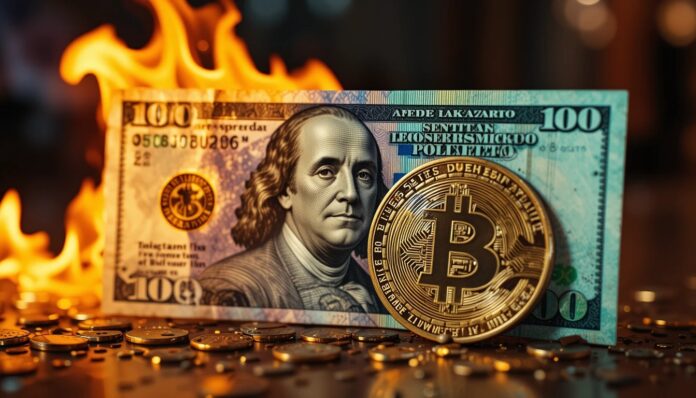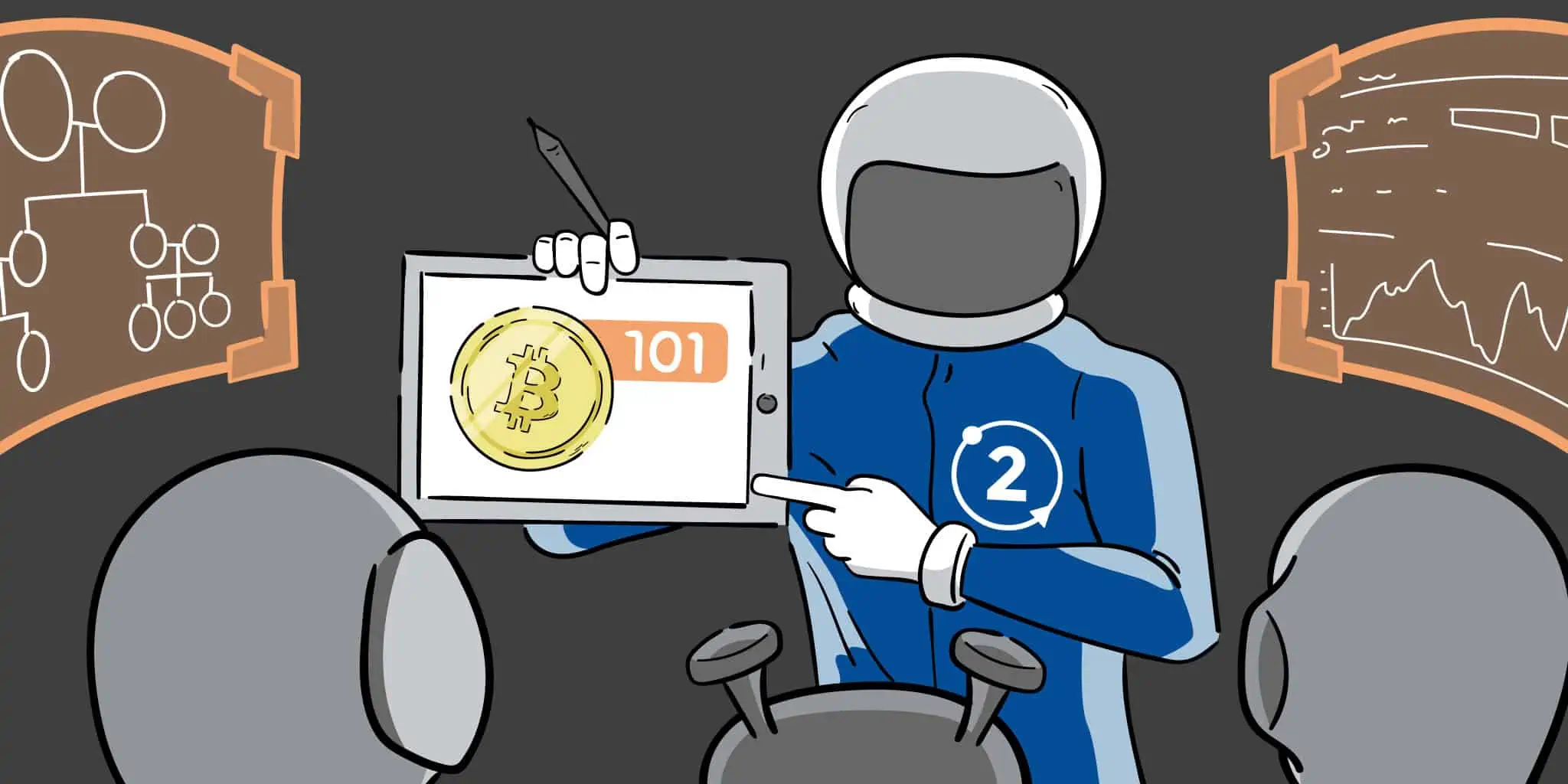
Bitcoin, with its limited and decentralized design, challenges the traditional monetary system and is gaining prominence as a safe haven against the inflation that erodes fiat money. Discover why more and more investors are interested in this and other cryptocurrencies.
Economic history is marked by constant transformations in the way we conceive and manage money. Currently, one phenomenon that has gained significant relevance is the interaction between Bitcoin, inflation, fiat money, and cryptocurrencies in general.
The debate revolves around how Inflation erodes the value of traditional money and because More and more people are turning to digital assets as a safe haven Faced with this reality, this article explores how the erosion of purchasing power affects fiat money, and how Bitcoin and other cryptocurrencies are emerging as resilient alternatives that are challenging the conventional monetary system.
TRADE BITCOIN ON BIT2MEInflation erodes the value of traditional currencies
Inflation represents the widespread and sustained increase in the prices of goods and services in an economy over a period of time, which reduces the purchasing power of fiat money. This phenomenon is not new; however, its impact has become more alarmingly evident in recent decades. For example, $100 from the mid-XNUMXth century today has considerably less purchasing power due to the constant issuance of money and expansionary monetary policies.
El Fiat money is money that does not have a physical backing, but rather its value depends on trust in a government or issuing entity. This trust can deteriorate when money is issued uncontrollably, generating high inflation or even hyperinflationary phenomena such as those experienced in countries like Venezuela, where the rapid loss of value of money has led people to seek alternatives to protect their savings.
Inflation negatively affects consumers because fewer and fewer goods and services can be purchased with the same amount of money. Furthermore, inflation can discourage investment and savings, affecting economic growth. Politically, it also generates social discontent and a loss of confidence in financial institutions.
For these reasons, fiat money is increasingly under scrutiny, especially as purchasing power declines and people seek assets that won't depreciate with inflation.

Bitcoin 101 Course
Medium levelIn Bit101Me Academy's Bitcoin 2 Course you can continue your crypto education and learn what Bitcoin is, where it comes from and how to obtain it.
Bitcoin as a refuge from devaluation
Bitcoin emerged in 2009 as a revolutionary proposal for counteract the problems inherent in fiat moneyIts design is based on blockchain technology, a decentralized system that ensures transparency and security without the need for a central entity to control issuance or manage transactions.
A fundamental feature of Bitcoin is its limited supply of 21 million coins, which makes it a valuable asset. deflationary by nature, completely opposed to the expansionary money-printing policies of central banks. This programmed scarcity offers intrinsic resistance to inflation, making Bitcoin increasingly valued in contexts where traditional money is losing its purchasing power.
TRADE WITH CONFIDENCE – PREPARE YOUR WALLETVarious analyses, including a report Recently published by Coinshares, they point out that the acceleration of the loss of value of fiat money is driving the adoption of Bitcoin as a safe haven. Investors and ordinary people see in this cryptocurrency a store of value similar to gold, but with the advantage of being digital, easily transferable and globally accessible.
"People tend to turn to hard assets, such as gold and Bitcoin, to protect themselves against the deterioration of fiat currencies because they maintain their purchasing power. For the same reason, they serve as safe havens during periods of economic or geopolitical instability."says the report.
A superior alternative to traditional gold
Coinshares analysts even emphasize that, in countries with high inflation, the adoption of Bitcoin and other cryptocurrencies has increased considerably, offering a tangible alternative for preserving wealth in times of economic uncertainty.
Part of this accelerated adoption is related to the intrinsic qualities and characteristics of Bitcoin, considered a hard asset, even superior to gold.
«Bitcoin is arguably a more effective store of value in some ways [than gold], given that its smallest denomination is one Satoshi (0,00000001 BTC) and holders can store it in a digital wallet.», said the firm's analysts.
When comparing Bitcoin to traditional assets like gold, the cryptocurrency offers additional advantages: Extreme divisibility, portability and ease of transfer without intermediariesAll of these features allow BTC holders to protect their wealth from the inflationary risk that plagues fiat money.
GO TO BIT2ME LIFEGrowing adoption of digital assets
The growing interest in Bitcoin is reflected in the increasing adoption of cryptocurrencies by both individual users and financial institutions and corporations. Technological advancement, progressive regulation, and financial education are factors that have contributed to this expansion.
The ease of access to regulated exchange platforms such as Bit2MeThe emergence of Bitcoin ATMs and the inclusion of cryptocurrencies in diversified investment portfolios have democratized their use. Not only do countries with unstable economies see cryptocurrencies as a solution, but developed economies are integrating them into financial systems and products such as funds and ETFs. Furthermore, blockchain, the underlying technology of Bitcoin and other cryptocurrencies, offers transparency, speed, and reduced costs in international transactions, making it attractive for global trade and remittances, improving financial inclusion.
For all these reasons, analysts emphasize that, given the global economic uncertainty, preference for Bitcoin is growing, as it functions as a solid store of value, protected against manipulation by financial authorities.
Thus, while central banks print money in the face of economic crises, leading to a further loss of purchasing power, Bitcoin and cryptocurrencies are consolidating as the resilient alternative that can dethrone traditional fiat money.
Investing in cryptoassets is not fully regulated, may not be suitable for retail investors due to high volatility and there is a risk of losing all invested amounts.


